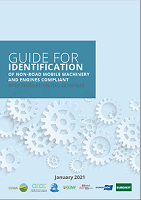Robotics News

June 2018
New studies on automation and future of work
ZEW and OECD studies give positive outlook and policy recommendations
Two studies recently published analyse the effect of digitalisation and automation on the future of work and the skills and training needs.
Researchers from the Centre for European Economic Research (ZEW), in a study funded by the German Federal Ministry of Education and Research looked at the "Digitalisation and the Future of Work". Their main finding is that the digital transformation overall is creating more jobs than it is destroying, but still poses many challenges for both firms and employees. To ensure the competitiveness of the local economy, the government needs to take action.
OECD published a new study on the potential effects of automation and artificial intelligence on employment. The research paper sheds light on the number of jobs at risk of automation (and the people at risk), looks at how different technologies affect that risk, and identifies the tasks/skills least likely to be automated. The tasks that AI and robots cannot do are shrinking rapidly. While only one in seven jobs may be lost to automation, many others will change significantly.
This study extended the scope of previous surveys to a total of 32 countries participating in the Survey of Adult Skills (PIAAC, which is conducted by OECD), but again using the so-called bottlenecks to automation as introduced by Osborne and Frey.
For more information on both studies:
Digitalisation Creates Jobs but Needs Targeted Support
Putting faces to the jobs at risk of automation
Quicklinks
EUnited AISBL- European Engineering Industries Association,
Industrious Brussels EU District, Avenue des Arts 6-9, 1210 Brussels, Belgium, +32 490 57 57 65
Transparency Register number: 0289344948-82
Industrious Brussels EU District, Avenue des Arts 6-9, 1210 Brussels, Belgium, +32 490 57 57 65
Transparency Register number: 0289344948-82
© 2024 Eunited aisbl, Bruxelles
















































































































